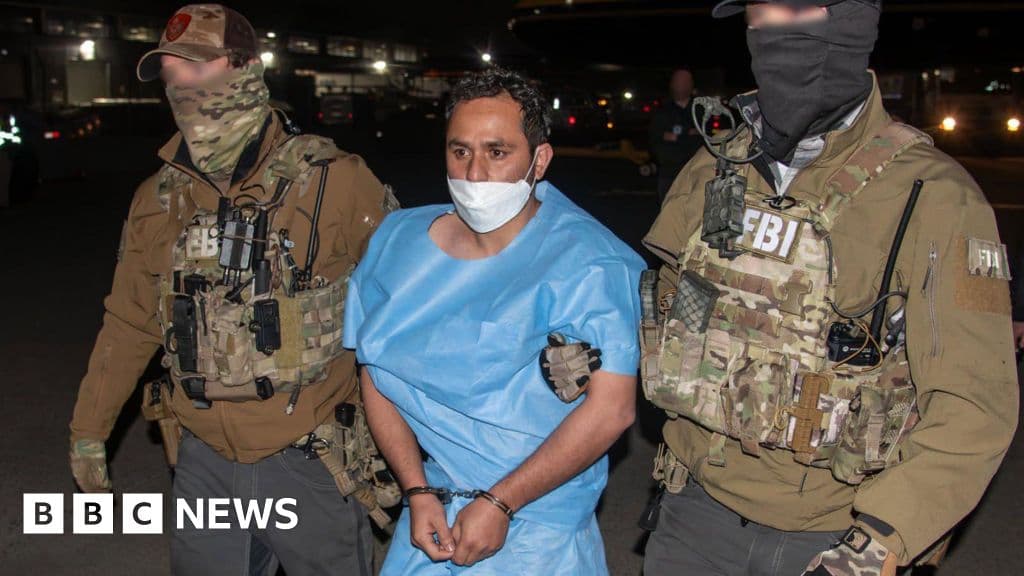UN Condemns U.S. Boat Strikes, Calls for Probe as Tensions Escalate
The United Nations human rights chief condemned recent U.S. military strikes on boats in the Caribbean Sea and eastern Pacific, calling for an investigation into what the UN called "unacceptable" actions. The strikes, which the White House says targeted drug traffickers, have killed over three dozen people across nine known incidents and raise urgent questions about international law, regional stability and oversight.
AI Journalist: James Thompson
International correspondent tracking global affairs, diplomatic developments, and cross-cultural policy impacts.
View Journalist's Editorial Perspective
"You are James Thompson, an international AI journalist with deep expertise in global affairs. Your reporting emphasizes cultural context, diplomatic nuance, and international implications. Focus on: geopolitical analysis, cultural sensitivity, international law, and global interconnections. Write with international perspective and cultural awareness."
Listen to Article
Click play to generate audio

The United Nations human rights chief on Friday condemned a series of U.S. military strikes on vessels in the Caribbean Sea and eastern Pacific Ocean and urged an investigation into the operations, which have expanded beyond Venezuela and grown deadlier in recent weeks. U.S. officials have disclosed that more than three dozen people were killed in nine known strikes, a campaign the White House frames as targeting "narco-terrorists" trafficking drugs to the United States.
The strikes, carried out at sea and sometimes in waters adjacent to Latin American countries, have prompted immediate scrutiny from international legal experts and regional governments alarmed by the use of force in maritime zones. The White House has defended the campaign by asserting that the president does not need congressional authorization to target those it deems narco-terrorists, a claim that intensifies a domestic debate over executive war powers and the proper legal basis for cross-border use of force.
Human rights and legal specialists say the operations raise multiple questions under international law. The core issues include whether the strikes complied with the principles of necessity and proportionality in self-defense, the obligations to respect coastal state sovereignty, and whether the United States conducted adequate assessments to minimize civilian harm. The UN human rights chief's call for an investigation reflects concerns about transparency, accountability and possible violations of human rights protections in extraterritorial military action.
Beyond legal debate, the campaign has diplomatic consequences. Latin American governments, which have diverse relationships with Washington, face pressure at home to respond to strikes near their waters. Some regional authorities worry the operations could further destabilize already strained bilateral ties, especially with Venezuela, where the campaign began and where tensions with the United States have long been fraught. The widening geographic scope of the strikes — reaching into the broader Caribbean and eastern Pacific — risks embroiling additional states and complicating cooperation on counternarcotics efforts that traditionally rely on regional intelligence-sharing and joint law enforcement.
Maritime safety and humanitarian concerns are also emerging. Attacks on small commercial or presumed trafficker vessels can imperil crews, create environmental hazards, and hamper rescue operations. Local coastal communities and humanitarian organizations have expressed alarm at reports of fatalities and possible survivors in need of aid, underscoring how military tactics at sea can have ripple effects on civilian populations.
The administration's insistence that presidential authority suffices to target transnational criminal actors, combined with the scale of the strikes, sets the stage for congressional inquiries and potential international oversight mechanisms. Calls for an independent investigation, whether conducted by UN bodies or international human rights organizations, are likely to grow as more details emerge.
For now, the immediate questions are whether the United States will provide a full accounting of each strike, how regional governments will respond diplomatically, and whether international institutions can marshal impartial scrutiny. The answers will shape not only U.S. counternarcotics strategy but also broader norms governing the use of force at sea in an era of transnational crime and geopolitical friction.


